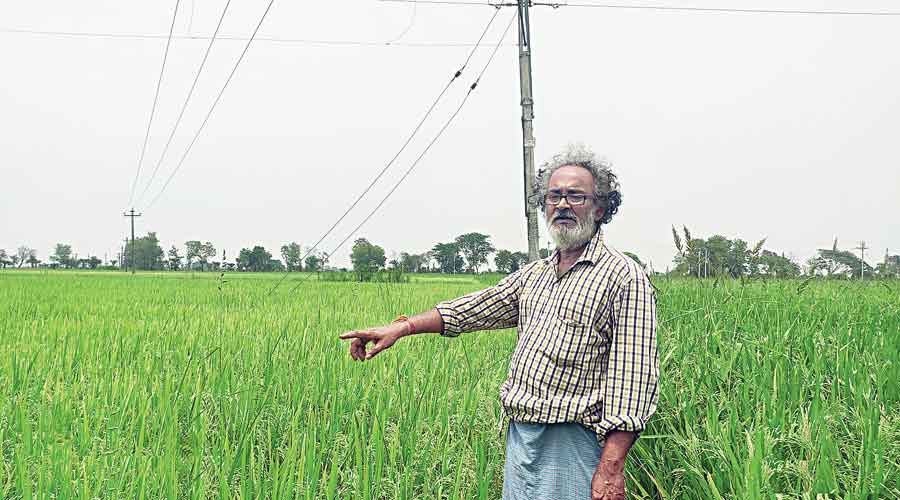The Jharkhand government should adopt an alternative policy of development based on cooperative farming and crop-based agro industries, an All India Kisan Sabha leader has said.
P. Krishna Prasad, finance secretary of the AIKS (the farmers’ wing of CPI) and chairman of the Wayanad-based Brahmagiri Development Society, a worker-peasant cooperative in Kerala, who was in Ranchi to attend the two-day state-level farmers’ convention, said on Monday that cooperative farming and crop-based agro industries are the only way to prevent an agrarian crisis in the state and the country.
“The alternative policy is essential to resist corporatisation of agriculture backed by the three new ‘black’ farm acts adopted by the BJP-led Union government. Without developing large-scale production and modernising agriculture under cooperative farming, the present alienation of tribal land, displacement and pauperisation of peasantry, converting them into migrant workers, cannot be resisted,” said Prasad, the former CPM legislator from Sultan Bathery in Kerala.
Prasad, who will be meeting Jharkhand agriculture minister Badal Patralekh on Tuesday before leaving for Kerala, added: “Cooperative farming will provide relief and prevent the crisis in agriculture to a certain extent.”
Prasad, who is known as one of the major proponents of the cooperative movement in India, told farmers at the convention: “The crop-based agro industry especially food industry and the growth of domestic market are inevitable to find a solution to the present crisis. This will help Jharkhand to achieve self-sufficiency in food production and enhance the purchasing power of workers and peasants.”
He said that he would submit a recommendation to the state agriculture minister.
“The state government should adopt a law in support of cooperative farming and modernisation of agriculture production by linking with agro-based industry especially food industry to ensure more employment and increased wage to agriculture workers and facilitate surplus sharing to enhance MSP on all crops to farmers. The state government should come forward to save farmers and agricultural workers from the cooperative loot under the (Narendra) Modi-led Union government,” said Prasad.
He also had a suggestion for Jharkhand chief minister Hemant Soren who has often expressed support for the farmers’ agitation in Delhi.
“In solidarity with the peasants, especially tribal farmers and agricultural workers, the chief minister should consider calling a special session of Assembly to adopt an alternative law based on cooperative farming” said Prasad.
The convention in Ranchi asked all farmers to come out in all the blocks of Jharkhand during the Bharat Bandh called by the Samykta Kisan Morcha in Delhi against the new farm laws and against the central government on September 27.
“The farmers’ movement will go beyond 2024 if the Modi government does not repeal the new farm laws. Jharkhand’s farmers have decided to extend full support to the bandh. The bandh would be historic,” said Prasad.
“The nine months of the farmers’ movement and the martyrdom of 600 farmers will not go in vain. A large number of farmers will hit the road on September 27,” said Sufal Mahato, state coordinator of the Jharkhand Rajya Kisan Sangarsh Samanvay Samity, an outfit coordinating the agitation against the three farm laws in the state.











